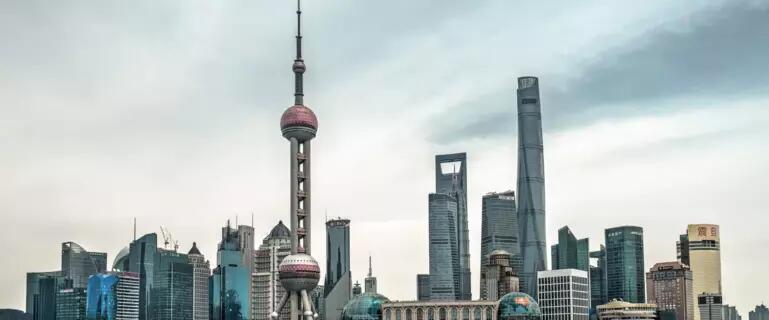Cheng Li is director of and senior fellow at the Brookings Institution’s John L. Thornton China Center and a distinguished fellow at the Munk School of Global Affairs and Public Policy. Li spoke with us about his fellowship, the implications of artificial intelligence, the Shanghai middle class, and the future of U.S.-China relations.
How did you become a Fellow at the Munk School? And what has your experience been so far, from research to student interactions?
My connection to the Munk School, and Canada by extension, is both professional and personal. Aside from being married to a Canadian, I was also fortunate to have known the late Peter Munk, namesake of the school. I became a Fellow at the Munk School at the recommendation of my wonderful colleagues at the school, particularly Rachel Silvey, Diana Fu, and Deanna Horton. Although I primarily live and work in Washington, D.C., I spend much time in Toronto. I profoundly enjoy working with my colleagues and the students at the Munk School. Over the years, I have collaborated on many joint events and projects related to Asian studies, demographic transformation and international migration, and Chinese elite politics. I worked on the release of the two Michaels and looked into hate crimes against Asians in North America.
Presently, I'm participating in the recently launched Munk School mentorship program, working closely with some very talented graduate students. I'm truly honored and privileged to be associated with this world-class global affairs & public policy school.
One of the areas you’ve looked into over the years is artificial intelligence, which also happened to be the theme of the Fellow’s Symposium that took place at the Munk School in April. Are you able to give us a recap of your speech?
We’ve entered a new era of AI. It’s changing our ways of life, the way the international system operates, economic development, and political control or political pluralism. It’s also directly related to security. So it's really everything, even though we’re still in the early stages of AI development. It’s also important to note that there are two superpowers in artificial intelligence – the United States and China, which are way ahead of many other countries now in terms of scholarly publications, industries, budget expenditures, and human resources. These two countries are currently engaging in competition and are on track to escalate to a confrontational situation.

Competition can often beget innovation and creativity, but it sounds like you’re leaning more on the skeptical, almost cautious and preventative side.
This is the scenario that Dr. Kissinger said we should avoid, because there would be no winner if two AI superpowers engage in vicious and stiff competition, with the danger for confrontation. It sounds like it has become increasingly a zero-sum game. So this is something to worry about. I do think major powers such as China and the United States should avoid this kind of zero-sum game thinking. Of course, competition is understandable, but there should be rules. It should be fair and not violate intellectual property rights. And in an ideal world, AI should not be used for military purposes. We need to develop international norms and regulations. Major powers have enormous resources and the political might to ensure we are moving toward more positive development and not causing the world more danger in the AI era, similar to nuclear, biotechnological, or chemical warfare.
As an expert on Chinese politics and international relations, what's your assessment of the future trajectory of US-China relations?
The U.S.-China relationship, also seen as the world's most consequential bilateral relationship, has deteriorated at a speed and scope beyond what could have been predicted. Not only has each side accused the other of being a genocidal regime and speculated that the COVID-19 pandemic had originated from a lab leak in the other country, but the risk for military confrontation and even war between both superpowers is on the rise. And particularly on subjects like Hong Kong and Xinjiang, these are areas of core interest for China. They're not in a position to compromise, despite the rise of international criticism and concern. These tensions show us how bad and how dangerous the bilateral relationship is now.
We are in a strategic deadlock. It will likely crystallize and result in the polarization of the world and two confrontational blocks in what I call the “10 key domains of bifurcation”, namely, 1) two trade and investment systems, 2) two industrial chains and supply chains, 3) two oil and natural gas channels, 4) two credit card payment systems, 5) two blockchains, 6) two financial and currency systems, 7) two IT, 5G, and internet systems, 8) two satellite navigation systems, 9) two outer-space exploration programs, and 10) two military and ideological blocs (or simply a new Cold War).
Some of them have already emerged and will be intensified. And some may take years to reach full-fledged decoupling, but will likely accelerate if the current trend is not reversed. We should be clear-minded that there is no guarantee that this will just be another Cold War; it will potentially be a hot war in the digital era.
What are the implications of Russia's invasion of Ukraine for China and the Asia-Pacific region?
The whole world, including China, has been astonished or shocked by the troubling developments in Europe, especially by the scale, scope, and the devastating ramifications of the ongoing Russian-Ukraine war. I've found that the economic, political, and intellectual elites in China are not monolithic in sum, and differ greatly in their perspectives. Their sharply divided views reflect growing pluralism in China and the gravity and the magnitude of the regional and the global challenges that the world now confronts as many Chinese recognize.
Russia’s invasion of Ukraine and the strong reaction by the international community not only mark the complete collapse of the post-World War II international order but may also lead to the end of economic globalization. It would be naive to believe that the Russia-Ukraine War will be the last war to reshape the international order, or to think that this sort of bloody war will be limited to continental Europe.
I believe that the world should be a multi-polar world including the great powers of the United States, China, India, Russia, EU, other Asian countries and also the growing importance of Africa and South America. We also should not forget the Middle East. Neither a unipolar nor bipolar structure serves the interests of the international community, but Russia's horrific invasion of Ukraine and the Western rhetoric about democracy versus dictatorship is pushing the word into bipolarity. We should ask ourselves whether we can live with this increasingly divided and the bifurcated world. And if not, what we should do to prevent this from worsening, and more importantly, how to maximize the chance for maintaining precious peace in these perplexing times. No other question is more urgent and more critical than this one.
How important is the role of multipolarity in combating these increasingly chaotic times?
There are things that we, as an international community, should look at out of common interest, like climate change and fighting pandemics. COVID-19 will not be the last one, and going forward, it will require much more international cooperation. There are no national cures or recoveries, only international and global ones. There is also the issue of nuclear nonproliferation and the threat of terrorism. To end up in a state of bifurcation in these areas would mean the end of economic globalization.

You recently published a book called Middle Class Shanghai: Reshaping US-China Engagement. Why the particular focus on Shanghai?
Ernest Hemingway once wrote, and I quote, “If you are lucky enough to have lived in Paris as a young man, then wherever you go for the rest of your life, it'll stay with you. For Paris is a movable feast.” My life has also been a movable feast. I was born and raised in Shanghai. I experienced the dark era of the Red Terror during the Culture Revolution as a young boy and the happier, more promising times of economic reform and opening up in the early 1980s as a college student.
Now I am an analyst of China and Sino-U.S. relations at an American think tank. I believe that, among the many forces shaping China’s domestic transformation and its role on the world stage, none may prove more significant than the rapid emergence and explosive growth of the Chinese middle-class. And at the center of this story is the city of Shanghai, the so-called “cradle of the Chinese middle class.” Shanghai is not a monolithic entity and certainly, China is not either. Middle-class Shanghai reflects China's unsettled future because it embodies what I call ‘the Tale of Two Cities.’
Historically, Shanghai was the most Westernized Chinese city, but it was also the birthplace of the Chinese Communist Party and the center of Maoist radicalism during the Cultural Revolution. Presently, Shanghai is often regarded as the frontier city of market reform, opening up, and cosmopolitanism. But at the same time, the city is also seen as the head of the dragon in China's industrial policy and state capitalism. Shanghai serves as the vanguard of the middle class, worldly voices, views, and values. Yet the city has also increasingly become the showcase of China's growing nationalism and mercantilist global outreach.
We should understand Shanghai and China's future in an everchanging domestic-international environment and context. It is neither predetermined nor stagnant. The ongoing policy and the political discourse on China in the United States today disproportionately focuses on Beijing in the Chinese authoritarian system and often treats the most populous country in the world in a monolithic way. So that's why I choose to focus on Shanghai.
And why focus on the middle class of Shanghai, specifically?
A study of Shanghai, especially its dynamic middle class will hopefully challenge the dominant, negative narrative about China in the West and broaden our perspectives and our policy toward China. There are several main components of these negative views, for example, viewing China with no distinction between state and society, viewing the Chinese middle class as the political ally of the Party, all without recognizing the dynamism and the diversity of this new socio-economic force and its transitory political role. It is also interesting to note that Shanghai’s ongoing fight against COVID-19 in the wake of its widespread in the past two months, especially the strong criticism by the city’s middle class against rigid official measures, is an unfolding story to watch.
I argue that it is premature to announce that the US engagement policy with China under the eight presidents prior to the Trump administration has failed and that abandoning engagement policy will likely enhance the risk of military conflict and even war.
My book provides a comprehensive case, illustrating how the world’s two largest middle-class countries can find a new way to reshape US-China engagement. For example, despite the differences between President Biden, President Trump, and President Xi, one thing all three leaders have in common is their emphasis on middle-class development. For Trump, it was the idea of making America great again. For Biden, cutting taxes is the most important policy. Even his foreign policy is called ‘foreign policy for the middle class.’ For Xi Jinping, his idea of ‘common prosperity’ is to enlarge what he calls the ‘middle-income group in China’ or Chinese middle-class development. So this provides a common ground in plans for future development. And as the Chinese middle class emerges, especially in Shanghai, it’s in their interest to see prosperity in the American economy because it’s a huge market! I think that our working middle class may find that there’s a common interest. If we make the cake bigger, all can benefit. And I think that there's a possibility for cooperation.
A theme that seems to thread through your answers is the importance of engagement over competition. Could you speak more on that?
My book highlights the importance of people-to-people diplomacy and the enduring impact of educational and cultural exchanges across Pacific. The perfect representation of that is Kobe Bryant, and the Chinese people’s everlasting admiration and respect for him.
The tragic loss of Bryant on January 26th, 2020, came as a devastating shock to millions of Chinese on the other side of the Pacific. The emotional reaction of Chinese people and their heart-filled affection for this legendary basketball player is particularly notable given that the country was also in the peak of the deadly coronavirus crisis. The following day, there were more than 1 billion web searches for Kobe Bryant's name on the Chinese social media site Weibo, more than double the number of searches for coronavirus, the second most searched term in China. Kobe Bryant's influence in China reflects his longstanding goodwill toward the Chinese people. He saw himself as more than an athlete since basketball alone did not define his legacy. In 2009, Bryant established the Kobe Bryant China Fund in partnership with the Soong Ling Ching Foundation. This was a fund to help with earthquake relief in Sichuan province.
Bryant's interactions with Chinese people on a personal level highlight the important role of sports in public diplomacy, as well as the enduring legacy of cultural exchanges. Even at a time when the bilateral relationship has drastically deteriorated, cultural and education exchanges between two countries with profoundly different ideologies and political systems can promote mutual understanding, respect, and goodwill.
You might want to speak with the skier Eileen Gu, who seems to view sports not just as competition, but as an opportunity for collaboration and cultural exchange.
Exactly. I think whether she is Chinese or American is far less important than the fact that she represents the young generation, like the students at the Munk School. This generation is more progressive in terms of social values and more cosmopolitan in their vision. They can build a bridge to communicate with each other rather than point fingers at each other. People love their own country. But that should not equate to demonizing others.
As for competition between China and the United States, I would like to echo Dr. Kissinger’s recent assessment. He believes that the United States and China today are almost equally powerful and that neither country could win a total war nor destroy the other. This will be a war without a winner that should never be fought. We should not see today's world in a 19th century mindset, nor should we use a 20th century mindset to deal with the new challenges of our time. The technological revolution and its implications for asymmetrical warfare have further complicated military competition, making the prevention of the hot wars, even more difficult.
The prime minister of Singapore, Lee Hsien Loong, said a few years ago, “Any confrontation between these two great powers, China and the United States, is unlikely to end as the Cold War did - in one country's peaceful collapse.” Both countries therefore need to find an entirely new way and long-term strategic vision to coexist. This is what my book is all about. It starts with Shanghai and ends with the reasons for US and China to avoid excessive competition and to find some common ground to coexist with each other.



